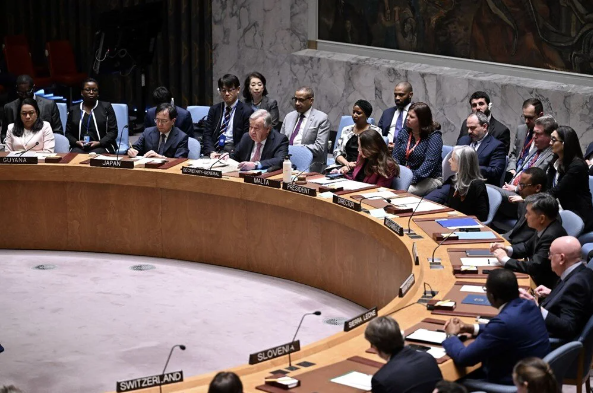In the political science literature, the terms “American exceptionalism” and “Arab exceptionalism” are concepts used to understand and explain various political developments. These two different types of exceptionalism provide an important reference point to explain the extraordinary position of the United States in global politics and why the Arab world has not been similarly affected by a similar wave of democratization and how authoritarian regimes have survived.
American exceptionalism is based on the foundations of democracy, freedom and equality, which have been the core philosophy of the United States since its founding and are a reflection of the supremacy of this country. America sees itself as the representative of these values at the global level and has a responsibility to spread them around the world. This has largely shaped US influence on international politics.
Arab exceptionalism, on the other hand, is a concept used to explain why the Arab world has not experienced a similar transformation and how authoritarian regimes have persisted even as the wave of democratization has spread. The popular uprisings in the Arab world in early 2011 began with hopes that Arab regimes would also democratize. In the following years, however, these hopes gave way to the restoration of the authoritarian status quo.
While the political and philosophical supremacy of the United States points to the concept of exceptionalism, which has a positive connotation, the Arab world has not been treated as an important issue in global politics due to the international community’s attitudes towards the authoritarian regimes in the region remaining in power. It is also necessary to examine in depth the global exceptionalism regarding Israel’s aggressive and expansionist policies despite their violation of the international order. A key example of this exceptionalism is the failure of the international community to impose deterrent sanctions despite Israel’s violations of international law and resolutions of international organizations, including the United Nations, and its territorial expansion targeting civilians.
The politics of appeasement and the limitlessness of Israeli aggression
Considering the historical context of the Israeli-Palestinian conflict, the concept that best explains the Zionist regime’s policy in the international arena is appeasement. Never giving up on its strategy of expanding the occupation for many years, Israel has sometimes strengthened its hand by succeeding in transforming the de facto situations it has created into a legal status, and sometimes with the open support it has received from the Western world, especially the United States, it has continued on its way without backing down. In the face of the voices raised from time to time by the international community against Israel’s attacks that fall within the scope of “crimes against humanity”, the Tel Aviv administration has not backed down from implementing the political framework it has adopted in an uncompromising manner.
The international community’s satisfaction with the relative recalcitrance of the Tel Aviv administration in order to appear as if it is not indifferent to the relative reaction to the radical steps it has taken in its expansionist occupation policy constitutes the first stage of Israel’s policy of appeasement. While the perception that the Zionist regime has been put under pressure and a barrier has been put in front of it has turned into a situation that is welcomed by many international actors, especially the Muslim world, what is actually happening is nothing more than an illusion created by Israel until it realizes its next move. As a matter of fact, the occupation administration, which managed to go beyond the first stage with a new radical step after a while, gives goodwill messages to the international community with some relative signals of return in the reaction environment, while on the other hand, it further consolidates its strategy. To illustrate this with an example, Israel advances from point A to point C, which it has set as a target for itself, by making a hard move. Then, the Zionist administration returns to point B, pretending to respond positively to the relative reactions, thus creating the impression that it is listening to the international community. After a while, Israel moves from point B to point D with a similar hard move and returns to point C by creating the perception that it has backed down in the face of the reactions. Thus, the Tel Aviv administration gradually reaches point C, which was initially determined. It is known that this process is repeated many times in Israel’s occupation policy. This situation, in which regional and global actors are mistaken every time due to the back steps taken, causes an eclipse of reason caused by Israel’s successful policy of denial. In this way, Israel is trying to transform the de facto situation into a reality that must be accepted by everyone by increasing its influence in the Palestinian territories it occupies day by day with systematic means of oppression.
Launched on October 7 by the Izz ad-Din al-Qassam Brigades, the military wing of Hamas, Operation Al-Aqsa Flood is a very important turning point in terms of destroying the perceptions that the Zionist regime has built up over many years and the effects of the destructive situation it has reached as a result of its policy of indoctrination have begun to be seen by the whole world. This unexpected operation, which shook Israel’s balance, is not only the most important break in the philosophy of resistance in Palestine after the First Intifada, but also reveals with all its nakedness that Israeli aggression knows no boundaries. The Zionist administration, which has been trying to legitimize itself through rhetorical superiority until today, is committing a genocide in front of the whole world by increasing the intensity of its attacks moment by moment due to the shock they experienced in the face of the determined stance of the Kassam resistance fighters and the casualties they inflicted. At this point, it should be asked why the international community has failed to impose sanctions, including the option of physical intervention, against the Tel Aviv regime and why the Western institutionalized democracies, in particular, consider the Zionist regime’s attacks legitimate.
Causes of Israeli exceptionalism
The degree of massacres committed by the occupation state in Gaza in the aftermath of the Aqsa Flood is the most important indicator of how ordinary the atrocities committed by Israel in the Palestinian territories have become. This situation, which is the most important reflection of Israeli exceptionalism, is directly related to the motivations of the occupation state in the process of consolidating its exceptional position in the international system. In this framework, it would be appropriate to discuss the formation of Israeli exceptionalism under three main headings.
Mainstream European powers are among the most criticized focal points for the pro-Israel stance of the Zionist administration towards the genocide in Gaza. In his work “The Jewish State”, Theodor Herzl states that, given the opportunity, this state would serve as a bridge between the civilized and barbaric world. This is important for understanding the context of the role played by the traditional European colonial powers in the establishment of Israel and sheds light on Europe’s pro-Israel stance today. Since October 7, it has been observed that France, the Netherlands and Italy have adopted a pro-Israel stance, albeit in a lesser tone, while the UK and Germany have directly supported it. It is a reflection of the traditional Holocaust narrative that these states, which show extreme sensitivity to freedom, human rights, democracy and international law, have taken the opposite position in the context of Palestine and especially Gaza. European states that cannot – and probably never will be able to – repay their debt to the Jews show an insensitivity to all vital Palestinian issues and play a major legitimizing role in the formation of Israeli exceptionalism.
Another facilitating factor in Israeli exceptionalism is the concessions made by authoritarian regimes in the Arab world in order to maintain their existence. The fact that the main character of the regimes is different from the demands and expectations of the societies necessitates that they can only maintain the status quo with the support of the US and other Western actors. These regimes, which suppress and try to eliminate opposition structures, especially Islamic movements, in the harshest way because they perceive them as a threat to the existence of the regimes, on the other hand, instrumentalize the Palestinian issue with a level of support in order to provide social legitimacy. This discursive strategy prevents Arab regimes from taking action against Israel. This understanding, which prioritizes the interests of the regimes, provides Israel with a serious room for maneuver and leads to the normalization of its aggressive and expansionist attitude in the eyes of the Arabs. The lack of the necessary political will from Arab regimes as well as from other Muslim countries has allowed Israel to strengthen its exceptional position.
The third and important context for the emergence of Israeli exceptionalism is the unlimited US support for the Zionist regime. The influence of Jewish lobbies in US politics and economic system cannot be ignored. The fact that these structures, which serve Zionist ideals, dominate the American establishment has played a major role in deepening the decades-long drama in the Palestinian territories. The influence of Jewish lobbies also puts US presidents under pressure and leads to a pro-Israel rather than pro-Palestinian stance in policy-making processes. In addition to Jewish lobbies, the decisive role of Christian Zionists in the American political system should not be ignored. US President Joe Biden’s efforts to legitimize all of Israel’s attacks since October 7 and his repeated statement “You don’t have to be Jewish to be a Zionist” are the manifestation of the deep relationship that some Christian political elites in the US have established with Zionism in the establishment of Israel’s callous attitude. The fact that Christian Zionists, like Jewish Zionists, develop a vision of world order with a similar eschatological approach and expectation necessitates a pro-Israel stance towards the genocide in Gaza, even though it goes against the founding philosophy of the US. The recent references to religious texts by a mentality that feeds on increasing chaos and massacres is an important proof that the purpose of the attacks on Gaza should not be evaluated only in the context of Hamas. In this regard, it is seen that the Jewish lobbies and the Protestant elements acting with them have transformed Israeli exceptionalism into an unquestionable and untouchable form in the face of international law and norms, taking strength from their hegemonic position in global politics.
Despite the resolutions adopted so far at the United Nations for Israel to end its occupation policy and for Palestinians to enjoy their basic rights, and despite the initiatives taken in the international arena to end the conflict, the occupation Tel Aviv administration continues to stick to its basic strategy, knowing that it will not be subjected to serious pressure and sanctions. The mainstream Western actors, who in other cases did not hesitate to intervene early or late – Iraq, Bosnia and Herzegovina, Kosovo, Afghanistan, Libya, etc. – despite the violations of law that took place in front of the eyes of the whole world, never bring the option of intervention or sanctions to the table in the case of Israel, and prevent the implementation of other political, legal or diplomatic pressure tools as much as possible or slow down the process completely. All this increases Israel’s freedom in global politics and creates what we should call Israeli exceptionalism – a state that violates all kinds of rules but does not take responsibility for its actions.





